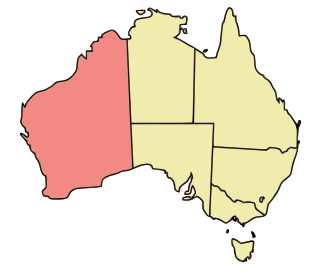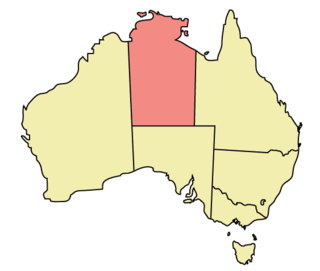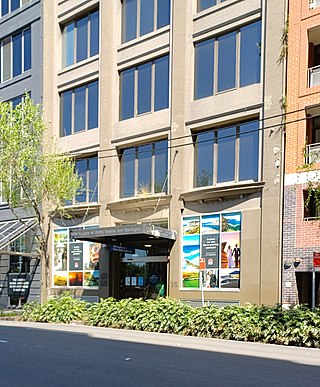
A civil union is a legally recognized arrangement similar to marriage, created primarily as a means to provide recognition in law for same-sex couples. Civil unions grant some or all of the rights of marriage.
Common-law marriage, also known as non-ceremonial marriage, sui iuris marriage, informal marriage, de facto marriage, or marriage by habit and repute, is a marriage that results from the parties' agreement to consider themselves married and subsequent cohabitation, rather than through a statutorily defined process. Not all jurisdictions permit common law marriage, but will typically respect the validity of such a marriage lawfully entered in another state or country.
A domestic partnership is an intimate relationship between people, usually couples, who live together and share a common domestic life but who are not married. People in domestic partnerships receive legal benefits that guarantee right of survivorship, hospital visitation, and other rights.

The Civil Partnership Act 2004 is an Act of the Parliament of the United Kingdom, introduced by the Labour government, which grants civil partnerships in the United Kingdom the rights and responsibilities very similar to those in civil marriage. Initially the Act permitted only same-sex couples to form civil partnerships. This was altered to include opposite-sex couples in 2019. Civil partners are entitled to the same property rights as married couples, the same exemption as married couples regarding social security and pension benefits, and also the ability to exercise parental responsibility for a partner's children, as well as responsibility for reasonable maintenance of one's partner and their children, tenancy rights, full life insurance recognition, next-of-kin rights in hospitals, and others. There is a formal process for dissolving civil partnerships, akin to divorce.
A de facto union in Portugal is a legally recognized relationship which is granted similar rights to marriage, without formal registration.
Australian family law is principally found in the federal Family Law Act 1975 and the Federal Circuit and Family Court of Australia Rules 2021 as well as in other laws and the common law and laws of equity, which affect the family and the relationship between those people, including when those relationships end. Most family law is practised in the Federal Circuit and Family Court of Australia and the Family Court of Western Australia. Australia recognises marriages entered into overseas as well as divorces obtained overseas if they were effected in accordance with the laws of that country. Australian marriage and "matrimonial causes" are recognised by sections 51(xxi) and (xxii) of the Constitution of Australia and internationally by marriage law and conventions, such as the Hague Convention on Marriages (1978).

Lesbian, gay, bisexual, and transgender (LGBT) rights in Australia rank among the highest in the world; having significantly advanced over the latter half of the 20th century and early 21st century. Opinion polls and the Australian Marriage Law Postal Survey indicate widespread popular support for same-sex marriage within the nation. A 2013 Pew Research poll found that 79% of Australians agreed that homosexuality should be accepted by society, making it the fifth-most supportive country surveyed in the world. With its long history of LGBT activism and annual Gay and Lesbian Mardi Gras festival, Sydney has been named one of the most gay-friendly cities in the world.
Same-sex marriage has been legal in Australia since 9 December 2017. Legislation to allow it, the Marriage Amendment Act 2017, passed the Australian Parliament on 7 December 2017 and received royal assent from Governor-General Peter Cosgrove the following day. The law came into effect on 9 December, immediately recognising overseas same-sex marriages. The first same-sex wedding under Australian law was held on 15 December 2017. The passage of the law followed a voluntary postal survey of all Australians, in which 61.6% of respondents supported legalisation of same-sex marriage.
Domestic partnerships were established in the state of Maine by statute in April 2004, taking effect on July 30, 2004. This placed Maine in the category of U.S. states that offered limited recognition of same-sex relationships, but not all of the legal protections of marriage, as Maine does not recognize common law marriages.
Tasmania's Relationships Act 2003 provided for registration and recognition of a type of registered partnership in two distinct categories: Significant Relationships and Caring Relationships. The same Act also amended 73 pieces of legislation to provide registered partners with nearly all of the rights offered to married couples within the state. Furthermore, since July 2009, these relationships are recognised at federal level, providing couples with almost all of the federal rights and benefits of marriage. The legislation came into effect on 1 January 2004. In September 2010, the Parliament of Tasmania approved legislation to recognize same-sex unions performed outside Tasmania as significant relationships.
Hungary has recognized registered partnerships since 1 July 2009, offering same-sex couples nearly all the rights and benefits of marriage. Unregistered cohabitation for same-sex couples was recognised and placed on equal footing with the unregistered cohabitation of different-sex couples in 1996. However, same-sex marriage is prohibited by the 2011 Constitution of Hungary, which took effect in January 2012.
The matrimonial law of Singapore categorises marriages contracted in Singapore into two categories: civil marriages and Muslim marriages. The Registry of Marriage (ROM) administers civil marriages in accordance to the Women's Charter, while the Registry of Muslim Marriages (ROMM) administers Muslim marriages in accordance to the Administration of Muslim Law Act (AMLA). All marriages performed in Singapore must be registered with the relevant registry in order to be legally valid.
Unregistered cohabitation is a legal status given to same-sex or opposite-sex couples in certain jurisdictions. They may be similar to common-law marriages.
Australia is one of the most LGBT-friendly countries in the world. In a 2013 Pew Research poll, 79% of Australians agreed that homosexuality should be accepted by society, making it the fifth most supportive country in the survey behind Spain (88%), Germany (87%), and Canada and the Czech Republic. With a long history of LGBT rights activism and an annual three-week-long Mardi Gras festival, Sydney is considered one of the most gay-friendly cities in the world.
The topic of same-sex unions and military service concerns the government treatment or recognition of same-sex unions who may consist of at least one servicemember of a nation's military.

This article details the history of the LGBT rights movement in Australia, from the colonial era to the present day.

Marriage in Australia is regulated by the federal government, which is granted the power to make laws regarding marriage by section 51(xxi) of the constitution. The Marriage Act 1961 applies uniformly throughout Australia to the exclusion of all state laws on the subject.

Lesbian, gay, bisexual and transgender (LGBT) rights in Western Australia have seen significant progress since the beginning of the 21st century, with male sex acts legal since 1990 and the state parliament passing comprehensive law reforms in 2002. The state decriminalised male homosexual acts in 1990 and was the first to grant full adoption rights to LGBT couples in 2002.

Lesbian, gay, bisexual, and transgender (LGBT) people in Australia's Northern Territory have the same legal rights as non-LGBT people. The liberalisation of the rights of lesbian, gay, bisexual and transgender (LGBT) people in Australia's Northern Territory has been a gradual process. Homosexual activity was legalised in 1983, with an equal age of consent since 2003. Same-sex couples are recognised as de facto relationships. There was no local civil union or domestic partnership registration scheme before the introduction of nationwide same-sex marriage in December 2017, following the passage of the Marriage Amendment Act 2017 by the Australian Parliament. The 2017 Australian Marriage Law Postal Survey, designed to gauge public support for same-sex marriage in Australia, returned a 60.6% "Yes" response in the territory. LGBT people are protected from discrimination by both territory and federal law, though the territory's hate crime law does not cover sexual orientation or gender identity. The territory was the last jurisdiction in Australia to legally allow same-sex couples to adopt children.

Civil registration in Australia of births, deaths and marriages as well other life events is carried out and maintained by each state and territory in Australia, in an office called a Registry of Births, Deaths and Marriages. It is compulsory in each jurisdiction, though the procedures and information recorded varies between jurisdictions. Access to information on the register is restricted by period or relationship, and is usually provided at a fee in the form of certificates. Nowadays, certificates can also be ordered online, and will be posted to the applicant, often with some delay.